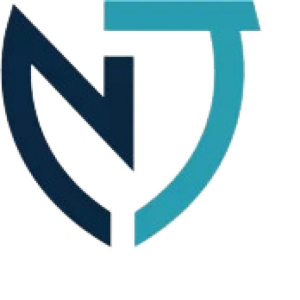In today’s fast-paced business environment, it is imperative to manage finances efficiently for success. Two of the leading cloud-based accounting software solutions in Australia are Xero and MYOB. Each offers unique features tailored to specific business needs, making the choice between them an important decision. This guide breaks down their key features, pros, and cons to help you select the best fit for your business. Once you have read this blog, feel free to reach out to your business accountant Melbourne, like Nobel Thomas, to discuss what’s best for you. Basically, anyone that provides accounting services can help you make the decision.
1. Ease of Use
Xero
- Known for its intuitive interface and user-friendly design.
- Ideal for beginners and non-accountants.
- Offers seamless navigation and a clean dashboard, making financial data easy to access.
MYOB
- Provides a more traditional interface, which may feel familiar to experienced users.
- Slightly steeper learning curve for new users.
- Customizable workflows but requires time to set up and optimize.
Winner: Xero, for its beginner-friendly and modern design.
2. Pricing
Xero
- Offers three main pricing tiers: Starter, Standard, and Premium.
- Prices range from approx. $30 per month up to well over $100 AUD per month.
- All plans include unlimited users, but the Starter plan limits the number of invoices and bills.
MYOB
- Two main pricing options: Essentials and AccountRight.
- Essentials plans start at around $20 AUD per month, but features vary with higher-tier plans.
- AccountRight provides more advanced tools for medium to large businesses and comes with additional costs.
Winner: MYOB is better value at this point in time. As pricing is prone to change, best to contact your business accountant Melbourne to assist you in deciding which software is better (or whether an alternative software is best for you).
3. Features and Functionality
Xero
- Robust integrations with over 1,000 apps, including payroll, inventory, and CRM.
- Strong focus on collaboration with unlimited user access.
- Automatic bank reconciliation and real-time financial tracking.
- Excellent invoicing and bill management tools.
MYOB
- Comprehensive payroll management built into higher-tier plans.
- Strong focus on compliance with Australian tax laws.
- Advanced inventory tracking, making it ideal for businesses with complex stock needs.
- AccountRight allows offline and online functionality for added flexibility.
Winner: Tie. Both software does the job in helping with bookkeeping and accounting services. Xero excels in integrations and usability, while MYOB is stronger in compliance and inventory management.
4. Customer Support
Xero
- 24/7 online support via email and chat.
- Extensive self-help resources, including guides, videos, and forums.
MYOB
- Offers phone support, email support, and a live chat option.
- Includes local customer service teams for Australian businesses.
- Comprehensive online resources, including webinars and how-to guides.
Winner: MYOB, for its personalized local support options.
5. Scalability
Xero
- Designed to grow with your business.
- Integrates easily with advanced tools to meet the needs of larger businesses.
- Simplifies collaboration with accountants and bookkeepers.
MYOB
- Scalable, particularly with its AccountRight product.
- Suited for businesses with complex payroll and inventory needs.
Winner: Tie. Both platforms offer scalable solutions, but the choice depends on your business model and growth trajectory. Again, your business accountant Melbourne can help with this choice.
6. Industry Fit
Xero
- Favoured by service-based businesses, startups, and freelancers.
- Suitable for industries like consulting, retail, and hospitality.
MYOB
- Popular among product-based businesses due to its strong inventory features.
- Ideal for industries like manufacturing, wholesale, and trades.
Winner: Depends on your industry. Xero is better for services, while MYOB shines in product-focused businesses. Your business accountant Melbourne will have further thoughts on which software is best for your industry.
Which Should You Choose?
The choice between Xero and MYOB ultimately depends on your business’s size, industry, and specific needs:
- Choose Xero if you’re looking for modern design, ease of use, and a wide range of integrations.
- Choose MYOB if you need advanced inventory and payroll features or prefer local customer support.
Evaluate your current processes, budget, and growth plans before deciding. Both platforms are powerful tools that can streamline your accounting and set your business up for success.
Our experts provide accounting services and can guide you through the process. Don’t hesitate to contact us today to get started.


